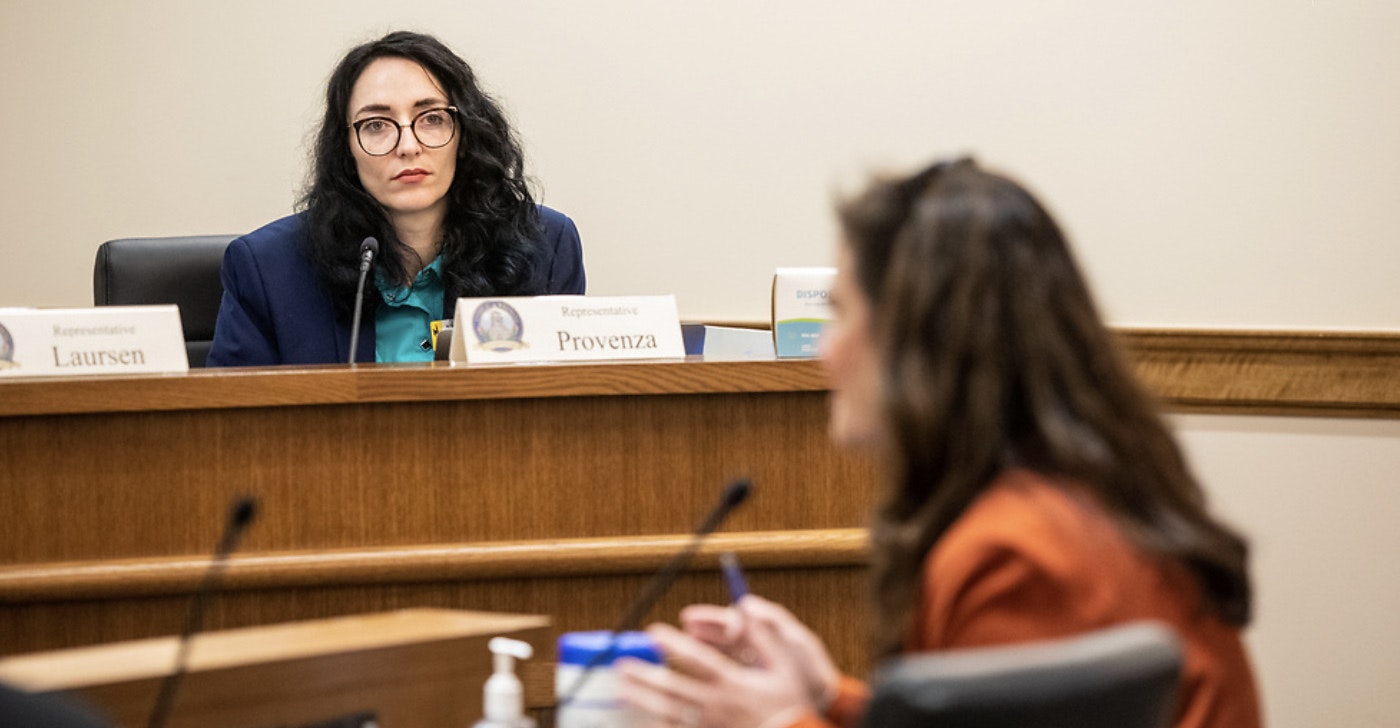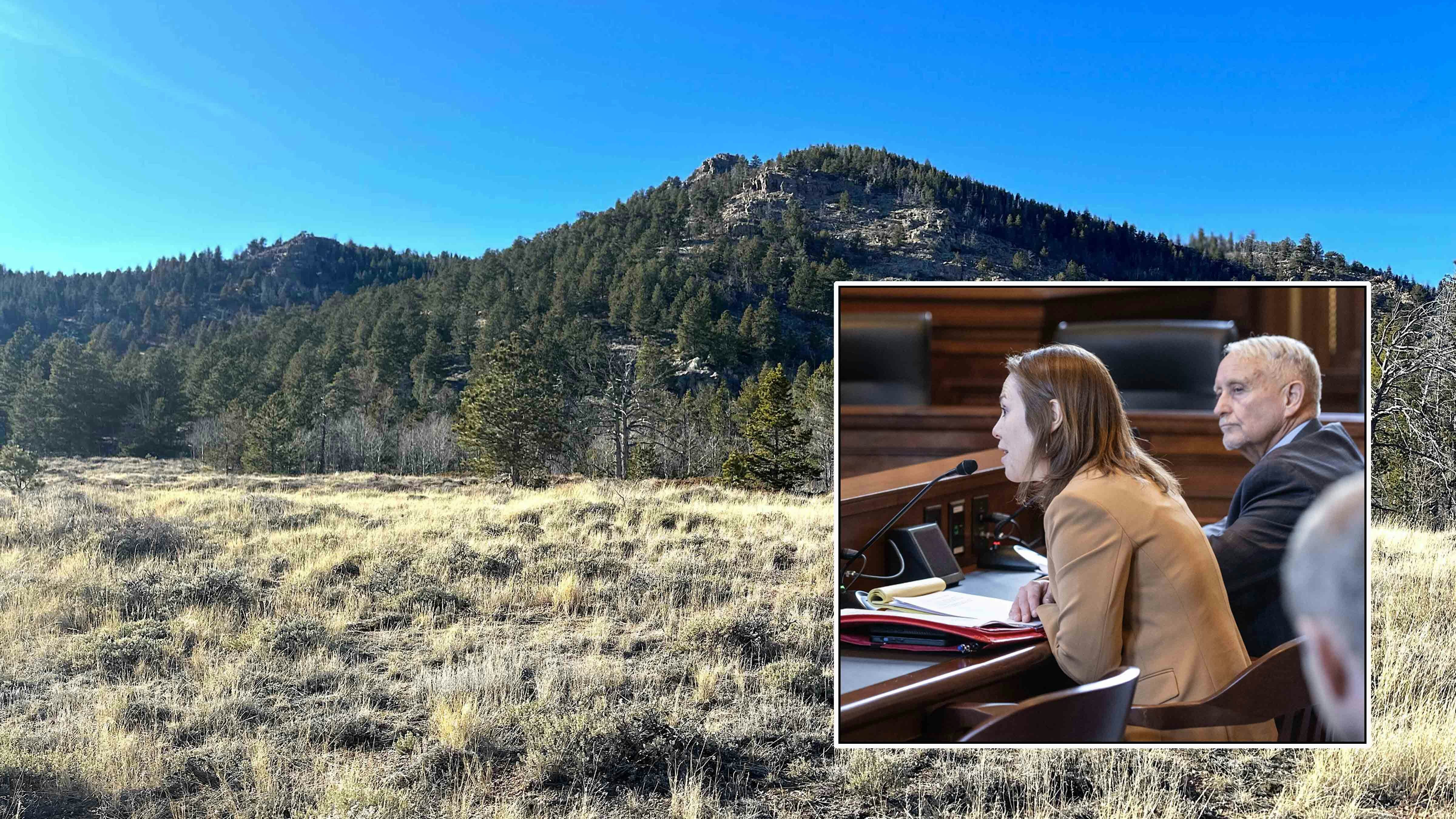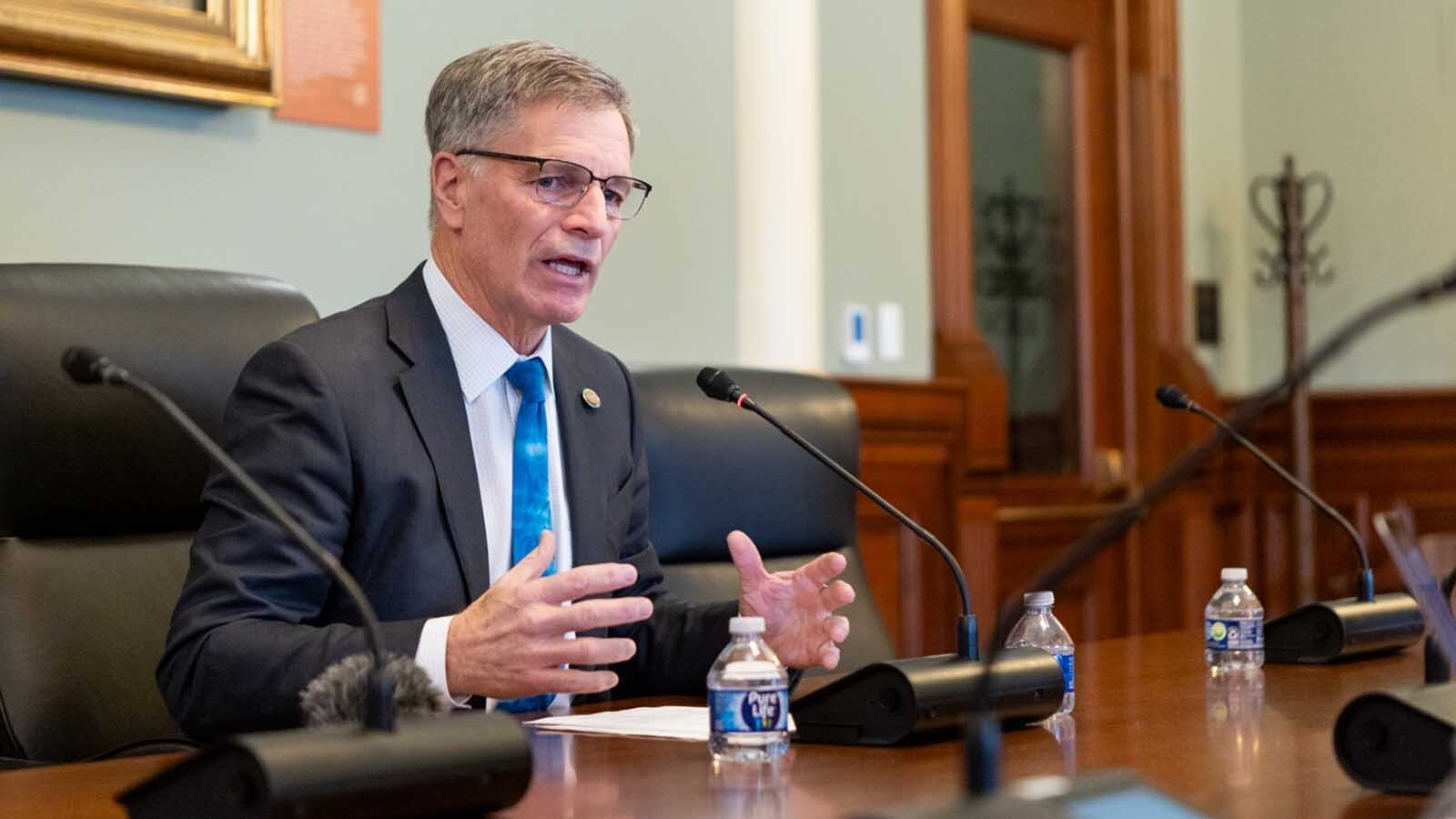The Wyoming Legislature’s Joint Judiciary committee rejected moving forward a bill that would have added protections for health care workers who fall victim to violence while on the job on an 8-5 vote.
Between 2011-2018, incidents of violence in health care settings grew by 63%, according to the U.S. Bureau of Labor and Statistics. Josh Hannes, vice president of the Wyoming Hospital Association, said 5,000 nurses were assaulted on the job nationally in the second quarter of 2022, an average of two assaults per hour.
If passed, “Assault and battery against health care workers” would have created a new charge to identify when violence in a healthcare setting or against a healthcare employee is committed, theoretically giving a judge more discretion to offer an enhanced penalty to an individual convicted for this type of crime.
Representatives from Wyoming’s health care industry spoke to the Judiciary committee on Tuesday and said although current reporting mechanisms have traditionally been sufficient, the recent increase in violence to health care workers has facilitated a need for more safeguards to protect staff.
Tracy Garcia, vice president and chief nursing officer at Cheyenne Regional Medical Center, shared a story with the Wyoming Legislature’s Judiciary committee on Tuesday, about a nurse at her facility recently being kicked so hard that her glasses flew off her head and out of an intensive care room she was working in.
Lisa Harry, a trustee with the Campbell County Health Board of Trustees, gave a similar account, saying she was physically struck, kicked, spit on and threatened in her former role as an emergency medical technician. One time, she pulled out a loaded gun out of a patients’ pocket.
“I don’t know what that intention was going to be, it’s scary,” Harry said.
Handling Of Incidents
State Rep. Jared Olsen, R-Cheyenne, voted against the bill. He questioned whether this type of violence is being effectively prosecuted. He said if it’s not that issue needs to be addressed before passing a bill like this.
Harry said law enforcement has been “very responsive” to reports of violence made in her facility. Garcia said these crimes are usually reported to law enforcement but prosecution of these incidents is low.
Hannes said there were 121 incidents of workplace violence reported in health care settings between January 2021 and June 2022 where a workers’ compensation claim was filed.
Sheila Bush, executive director of the Wyoming Medical Society, said health care workers are five times more likely to fall victim to violence than the average citizen.
“We don’t believe this is the silver bullet,” Bush said. “We do believe it’s an important piece of the puzzle.”
At Cheyenne Regional Hospital over the last four months, Garcia reported 25 instances of workplace violence involving patients. Of this total, 13 were physical assaults. From one of these assaults, a hospital security guard took a leave of absence on workers’ compensation. She said there has been many repeat offenders.
“It doesn’t appear that our communities are taking this serious,” she said.
There were also 12 verbal threats made, many of which including the threat of life. Garcia said about 50% of the calls her organization’s finance department receives are threats.
Harry said stronger penalties need to be imposed to send a message to people who come into hospitals and abuse nurses.
She said health care workers are not effectively protected under current laws and said the drafted bill still does not go far enough to protect them. Harry and Hannes said the same felony charges that can be used against people who commit violent crimes against law enforcement officers and firefighters should be applicable to those who commit those acts against healthcare workers.
“They should expect to be able to report those injuries and have something be done about it,” Harry said. “They deserve so much more.”
Rep. Ember Oakley, R-Riverton, said these types of crimes do not need to be treated as a felony, but should be identified in order to give judges the flexibility to offer heightened penalties. An attorney by profession, she warned that circumstances such as violence performed under the influence of intoxication or mental illness could cause issues with prosecution.
She offered a compromise that enhances the penalty provision for simple assault and battery up to one year in prison, up from the current maximum of six months in jail, while keeping these crimes in the category of misdemeanors. Her amendment passed.
Solutions And Responses
Rep. Karlee Provenza, D-Laramie, opposed the bill, but did agree with its overall purpose.
She mentioned how attacks on law enforcement officers have not gone down despite these acts being considered a felony offense. She also expressed concern that increased penalties would disproportionately affect an already-vulnerable segment of society.
“This isn’t the answer,” she said.
Louisiana recently passed legislation making violent acts against healthcare workers a felony as long as hospitals warn patients of the penalty with signage and provide de-escalation plans for staff. There are a total of 32 states that have felony charges like these on the books and six have heightened penalties for violent crimes against healthcare workers. No statistics were provided to show if these laws have been effective.
In June, the SAVE ACT was introduced in the U.S. House. This bill attempts to address violence and intimidation committed against health care workers, with enhanced penalties at the federal level. Toni Decklever, a lobbyist with the Wyoming Nurses Association, said this bill has come about because states are not doing enough to protect these workers.
She said the COVID-19 pandemic made nurses a target for the public’s hostility and frustration over restrictions.
On Monday, 15,000 nurses in Minnesota walked off from their jobs and went on strike due to a variety of complaints about workplace conditions.
“The number one reason why people leave their place of employment is because they don’t feel valued,” Decklever said.
Wyoming is the only state in the nation without legal workplace protections in place for employees.
Decklever said this lack of protection can make it more difficult to retain traveling nurses who can leave a facility after their 13-week contract expires.
Hannes and Rep. Dan Zwonitzer, R-Cheyenne, said the drafted bill could help Wyoming health care employers have better success in recruiting employees. Garcia said she fears that health care services may be reduced in the future because not enough people are entering the profession.
“We’ve had young nurses who have experienced violence … decide this is not what they want to do for the rest of their life,” said Arleen Campeau, vice president for patient care services at Powell Valley Healthcare.
She said there is no training provided to nurses on how to respond to violence while attending school but said there is on-the-job training provided on de-escalation methods.
The bill would have allowed for easier tracking of how much health care violence is occurring throughout the state.
Olsen some countries like the UK have experimented with temporary bans for individuals who commit violence in health care settings.
Sen. John Kolb, R-Rock Springs, worried that the bar for threat of violence could be brought so low with the human subjectivity potentially rendered in this bill that it will turn into a “woke situation,” where someone is unfairly charged for looking at someone the wrong way.
Campeau said she has never investigated a situation where a patient looked at someone in a particular way.
“No situation like that ever comes up,” Hannes said, agreeing with Campeau. “What happens is patients who are very explicit in their threats.”
He mentioned how one detail offered a detailed plan for how they were going to wait outside and kill a healthcare worker when they left to go home.
Hannes said the bill may not stop violence in health care settings but is simply a measure that will help with this effort.
Kolb said this is exactly why he is opposed to the legislation.
“This is not a means to an end, it’s a more punitive punishment for actions I don’t agree with,” he said.





